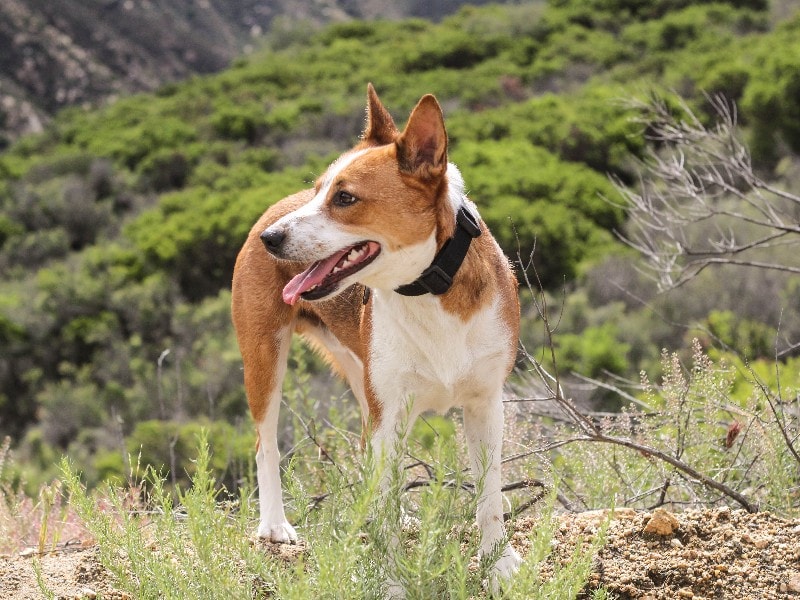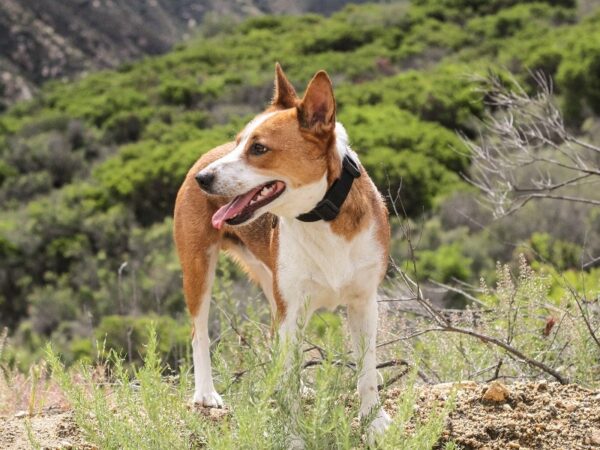Click Below to Skip Ahead
Are you considering bringing a dog into your home? If so, you’ve probably looked at several breeds that might be a good fit for yourself and your family. But have you looked at the Feist dog? If you’re unfamiliar with the Feist dog, we’re here to tell you all you need to know about this canine breed.
Though the Feist isn’t for everyone, these pups can make excellent pets for the right people. You only need to commit to being active enough for one of these canines and ensure they’re well cared for. Here’s everything you need to know about the Feist!
Breed Overview
Height:
10–18 inches
Weight:
15–30 pounds
Lifespan:
15–18 years
Colors:
Fawn, black, Isabella, white, pied, gray, brindle, silver, sable, blue, cream, tan, brown, red
Suitable for:
Families with older children, those who are active
Temperament:
Curious, energetic, intelligent
This dog breed hails from the American South, where it was bred from hunting dogs brought to the States by Irish and German immigrants. These pups were designed to be hunters, as well as companions, so their hunting instincts and prey drive are high. There are many types of Feists available today that come from various bloodlines.
Feist Dog Characteristics
Feist Dog Puppies
If you’re interested in adopting a Feist, then you’ll most likely need to locate one via a reputable breeder or rescue organization. Because this breed isn’t recognized by the American Kennel Club (AKC)—though recognized by other clubs and organizations—they can be susceptible to disreputable backyard breeders. If you don’t research the breeder you’re considering, you could wind up with a puppy prone to ill health and behavioral problems.
You might also be able to locate a Feist dog through a rescue organization (though Feist rescues are rare), and you may need to travel to get one if you don’t live in the American South or California (as this is where most of the rescues seem to be). If you live in an area like the South where Feists are common, there is a chance you could stumble across one in your local shelter, but in many states in the U.S., this may not be a possibility.
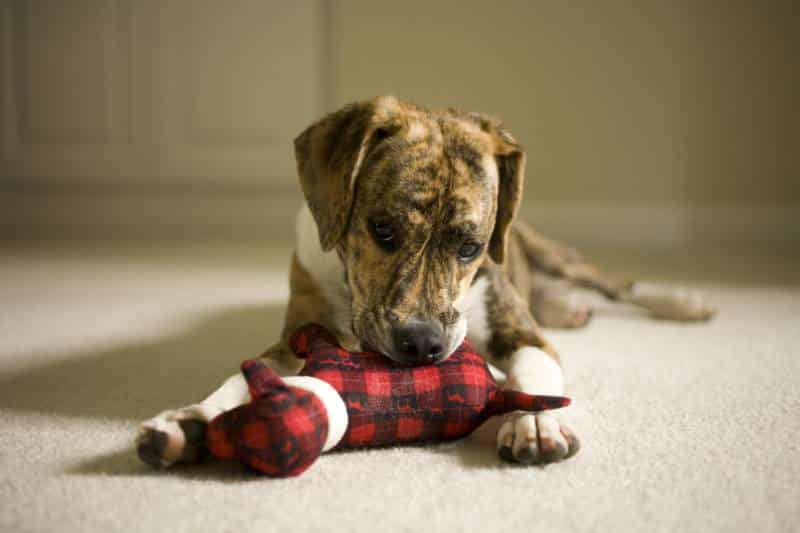
Temperament & Intelligence of the Feist Dog
The Feist is known for being curious and intelligent, which can make for a fun combination. However, that same combo also means that these pups need a lot of mental stimulation to keep them from becoming bored. A Feist will enjoy learning new things, having a job to do, and strategizing.
These dogs are also quite energetic and active, so they require lots of physical stimulation as well. They will need plenty of walks and more to work that energy off! Because the Feist is a remarkably agile dog, you may want to consider setting up an agility course in the backyard.
You’ll find these pups are friendly, lively, and fearless, too. A Feist will form a strong bond with their family and love playing with them. In fact, this breed is one that you don’t want to leave on their own for hours at a time, as they could become anxious and bored. The Feist will work best in households where someone is almost always home.
Also, be aware that these canines sometimes get a bit barky. They’re quite watchful and will likely bark whenever someone comes to the front door.
Are These Dogs Good for Families? 👪
Feists can absolutely make wonderful family pets. However, they work better for those who have older children, as these pups don’t have the patience to deal with young children who are still learning how to interact with animals appropriately. You might also find that your Feist is possessive over items like toys, which they may not want to share with kids.
The key to developing a good relationship between the Feist and children is to properly socialize the dog from a young age. Feists that have been around children from puppyhood will get along much better with them than dogs that have not been socialized from early on.
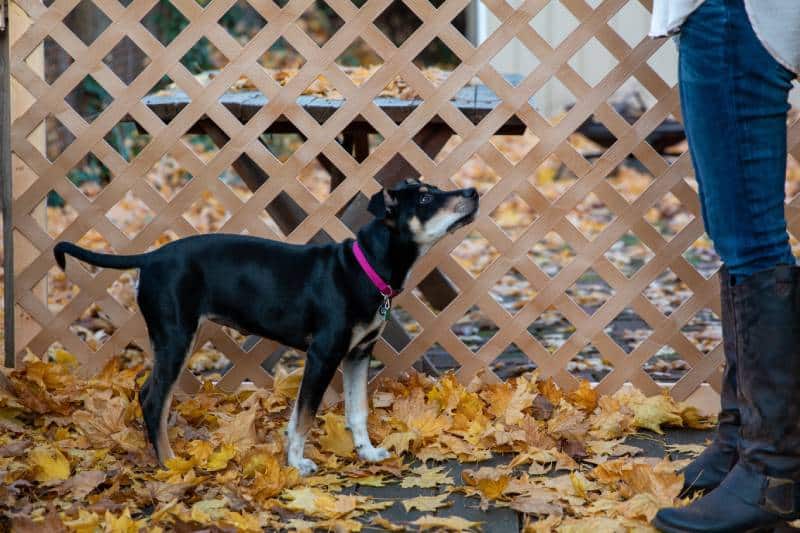
Does This Breed Get Along With Other Pets?
A Feist is capable of getting along with other canines if they are being raised together (though these pups might be a little bossy towards other dogs). New dogs coming into the family are an entirely different story, though; Feists can have a tendency to fight with new dogs in the household.
If you have a cat or small animal, like a hamster, it’s recommended you do not have a Feist in the home. These dogs were bred to be hunters, so their prey drives are extremely high. That and their boundless energy make them dangerous for animals smaller than them.
Again, the key to a Feist getting along with other dogs and animals is proper socialization from a young age!
Things to Know When Owning a Feist Dog
Once you’ve decided if a Feist is suitable for you and your family, you’ll need to learn much more about them. Having a dog means knowing what to feed them, the kind of exercise they require, whether they are easy to train, and more.
Food & Diet Requirements 🦴
Like all canines, the Feist will need a diet of high-quality dog food. Due to how energetic the breed is, though, dog food that is exceptionally high in protein will be required to sustain that energy. A Feist may also need food that’s a bit higher in calories; these dogs expend a lot of calories with their high-energy antics, so they’ll need food that will replenish those.
You may need to look for a food specifically designed for dogs with allergies, too, as this breed is prone to allergies. If you think your pup may have allergies, your vet will need to test them to find out what exactly they are allergic to.
Exercise 🐕
We’ve mentioned a few times that the Feist is a breed with a ton of energy. All that energy has to go somewhere so your pup doesn’t become bored and begin engaging in destructive behaviors! That means you’ll need to aim for 1–1.5 hours of exercise daily (and not all that exercise will be going for walks).
While walks should be taken and often with these canines, your dog will also need activities that require more energy than just a walk around the block. Your pup will need runs, hikes, games of chase, swim time, and the like. Throwing in some agility training and trips to the dog park are excellent ideas, as well.
The short of it is that if you’re more likely to be found reading on the sofa than engaging in activity, this isn’t the breed for you.
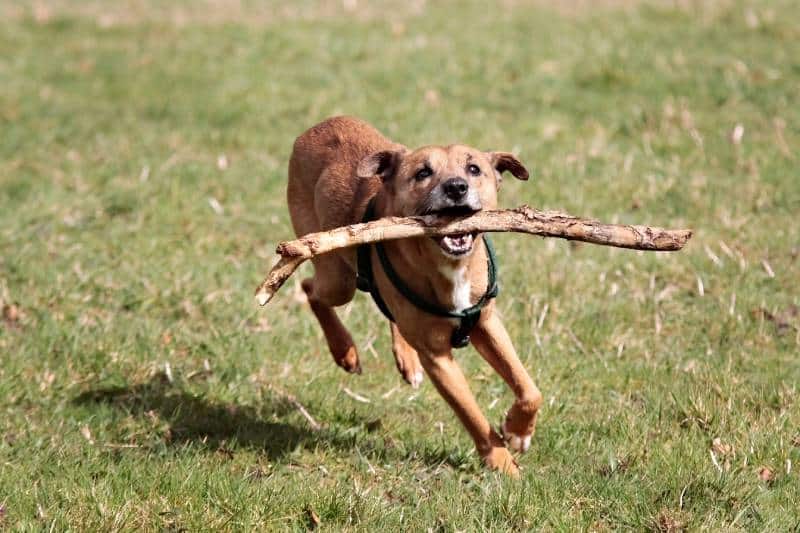
Training 🎾
Feists are a breed that will be able to easily pick up new commands and tricks due to their intelligence. That said, these dogs have a mind of their own and may prove a challenge during training because of their stubbornness. An experienced dog owner will have less difficulty training a Feist than a first-time owner.
Experienced or first-time, you’ll need to be extremely patient while training one of these pups, and you’ll need to begin their training early. Use plenty of positive reinforcement, break training into bite-sized sessions, and remember to socialize your dog early!
If you find yourself having trouble, find a professional trainer to lend you a hand. This is a dog breed you can’t skip out on training.
Grooming ✂️
Training a Feist may prove a bit tricky, but grooming one of these dogs is an area where things are extremely simple! Because they have short coats that don’t shed a lot, all you need to do with a Feist is brush them two or three times a week. Other than regular brushing, your dog will need to be bathed every six weeks or so (because of their predisposition to allergies, you may need to find a shampoo that works for allergy sufferers), have their nails routinely trimmed and teeth brushed, and you’ll need to check and clean their ears regularly. That’s pretty much it for these pups!

Health and Conditions 🏥
All dog breeds have a few health conditions they are prone to, and the Feist is no different. Though these canines are quite hardy and tend to be healthy, they do have a few problems that may arise.
- Allergies
- Ear infections
- Hip dysplasia
- Elbow dysplasia
- Patellar luxation
Male vs Female
Really, the only difference between male and female Feists is their size, as males tend to be a bit larger than females. Personality-wise, though, these dogs will be roughly the same (of course, every dog is an individual and will have their own personality). But the sex of the dog isn’t much of a deciding factor here.
Which you want will depend on your personal preferences. You may also want to keep in mind the costs of having a dog neutered versus having one spayed.
3 Little-Known Facts About the Feist Dog
Want to know even more about the Feist dog? Here are three facts of which you might not have been aware!
1. There are different kinds of Feists.
There are many varieties of Feists, including the Mountain Feist, Barger Stock Feist, Mullens Feist, and American Treeing Feist.
2. Theodore Roosevelt went hunting with a Feist.
The Feist’s name was Skip, and the breed became more popular due to their connection with Roosevelt.
3. The breed is not hypoallergenic.
Many think that because the Feist is such a low-shedding dog that it is considered hypoallergenic, but it is not. You may still have issues with this breed if you’re an allergy sufferer.

Final Thoughts
The Feist dog can make a wonderful companion animal for the right person or family. You’ll have to stay on your toes with this pup, though, as they are incredibly energetic and require much activity to burn off that energy. These canines will do better in homes with older children and those where someone is home more often than not, as they dislike being left on their own for long periods. But if you’re able to meet the needs of the Feist, you will find yourself with an affectionate and loyal friend!
Featured Image Credit: Piqsels

